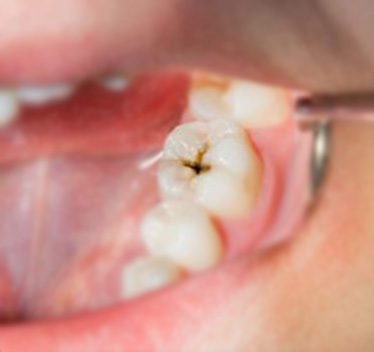C
aries are a degenerative disease of the hard tissues of the tooth caused by the same bacteria normally present inside our mouth, which undergo changes mainly due to poor oral hygiene and immediately attack the outer layer of the tooth (enamel) and can proceed up to its innermost layer (pulp). When you feel pain it means that the bacteria have already reached the pulp of the tooth and we talk about caries in the more advanced stage, for this reason a check-up visit and professional hygiene at regular intervals is always recommended.
ENDOGENOUS CAUSES:
- Quality and quantity of saliva: Saliva buffers oral acidity, has an antimicrobial and protective function. Therefore, a change in the composition or amount of
saliva secretion can predispose teeth to bacterial attack. - Dental characteristics: some teeth may be more difficult to clean, therefore
predisposed to the accumulation of bacterial plaque and the stagnation of food residues that increase caries receptivity.
EXOGENOUS CAUSES:
- Dental plaque: This is the whitish patina that forms on the tooth surface,
composed of food residues and bacteria. It turns into tartar when the saliva calcifies. - Nutrition: it is known that the excessive consumption of sugars favours dental caries. It is also important to remember that it also depends on when sugars come into contact with our teeth, in which times of the day and how often.
- Tobacco: turns teeth yellow and promotes dental infections, including caries. Also, certain types of tobacco contain a high sugar content, increasing teeth’s susceptibility to caries. But that’s not all: smoke is a significant risk factor for a periodontal disease (pyorrhoea).

Follow our protocol
CHOOSE THE RESTORATIVE DENTISTRY
Do you want to save your natural teeth?

